Search
Search Results
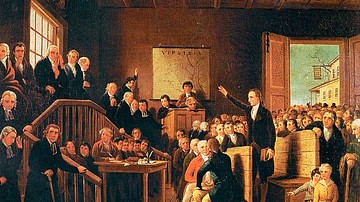
Definition
Parson's Cause
The Parson's Cause was a legal and political controversy that arose in the British colony of Virginia in the early 1760s. In response to the royal veto of the Two Penny Act, a policy passed by Virginia's House of Burgesses, a young lawyer...
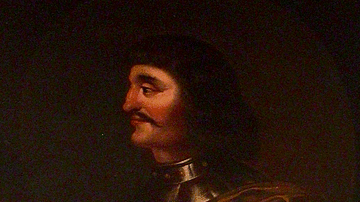
Definition
William I of Scotland
William I of Scotland, also known as 'William the Lion' after his heraldic emblem, reigned from 1165 to 1214 CE. Succeeding his elder brother Malcolm IV of Scotland (r. 1153-1165 CE), William was faced with a shrinking kingdom, but he harboured...
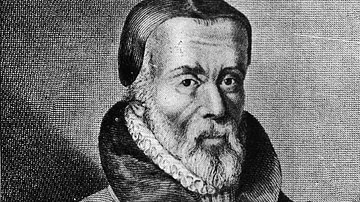
Definition
William Tyndale
William Tyndale (l.c. 1494-1536) was a talented English linguist, scholar and priest who was the first to translate the Bible into English. Tyndale objected to the Catholic Church’s control of scripture in Latin and the prohibition against...
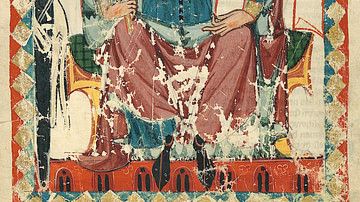
Definition
German Crusade 1197-8 CE
The German Crusade of 1197 CE, also known as the 'Emperor's Crusade', was led by the Holy Roman Emperor Henry VI (r. 1191-1197 CE). Although the emperor died on his way east, his army did capture Beirut from the forces of the Ayyubid dynasty...
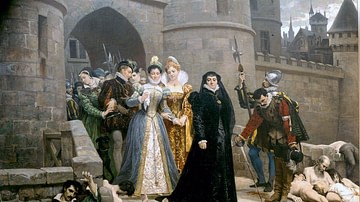
Article
Margaret of Valois' Account of St. Bartholomew's Day Massacre
Margaret of Valois' eyewitness account of St. Bartholomew's Day Massacre is among the most famous and the only written record of the event left by a member of the royal family of France at the time. Her account appears in her memoirs as Letter...

Article
The Wars of the Roses: Consequences & Effects
The Wars of the Roses (1455-1487 CE) was a dynastic conflict where the nobility and monarchs of England intermittently battled for supremacy over a period of four decades. Besides the obvious consequences of Lancastrian and Yorkist kings...
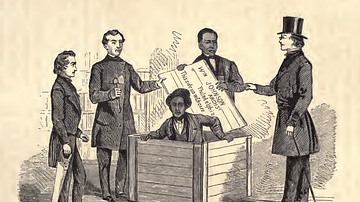
Article
Henry Box Brown on Slavery in the United States
The Narrative of the Life of Henry Box Brown (1851) is the autobiography of Henry Box Brown (l. c. 1815-1897), who became the most famous fugitive slave of his time when he had himself shipped in a box from Richmond, Virginia, to Philadelphia...
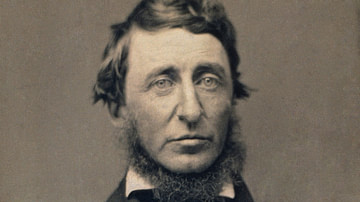
Definition
Henry David Thoreau
Henry David Thoreau (1817-1862) was an American philosopher, writer, naturalist, and political activist. He is best known for his book Walden, published in 1854, which recounts his two-year experiment living alone in a small cottage at Walden...
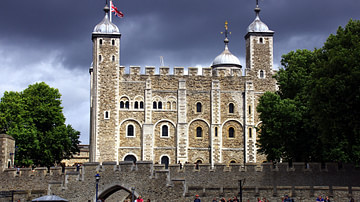
Definition
Tower of London
The Tower of London is a castle located in London alongside the River Thames which was first built by William the Conqueror from c. 1077 and significantly added to over the centuries. Often referred to in England as simply 'the Tower', it...
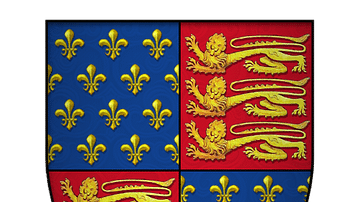
Article
Causes of the Hundred Years' War
The Hundred Years' War (1337-1453) was an intermittent conflict fought between England and France that started when king Edward III of England (r. 1327-1377) squabbled with Philip VI of France (r. 1328-1350) over feudal rights concerning...